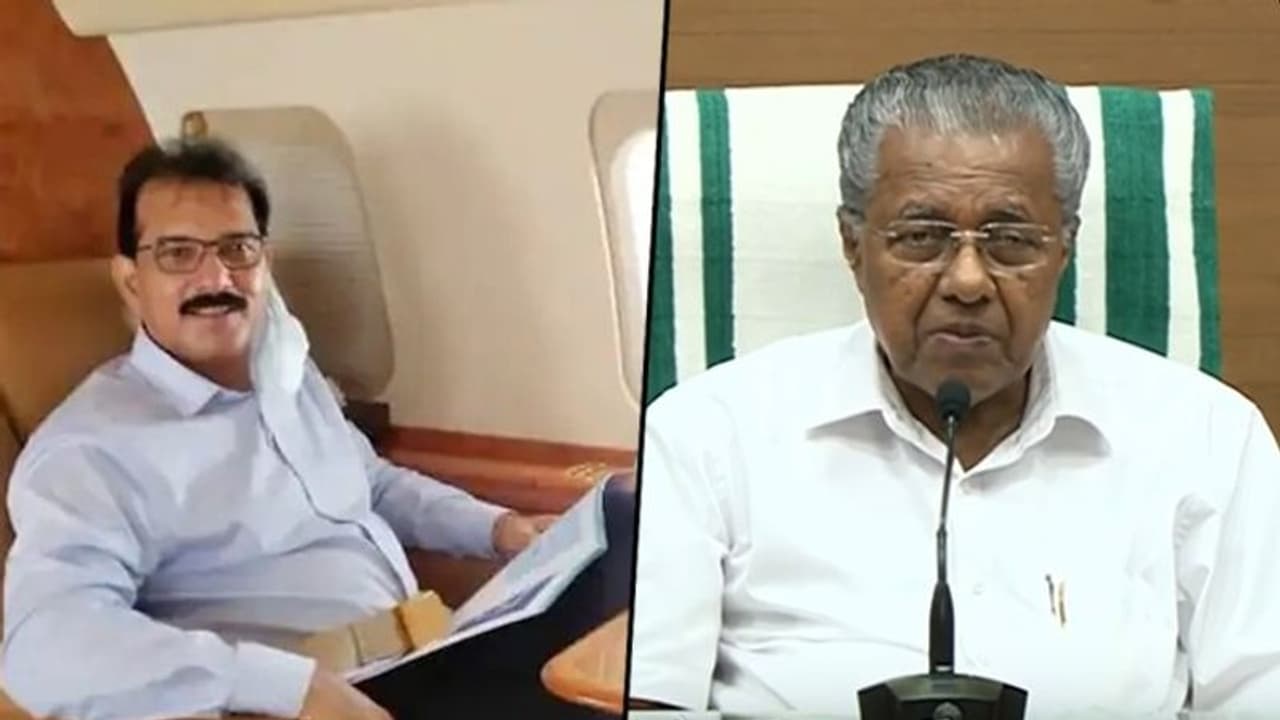The decision of the Kitex Group, the world's second-largest manufacturer of kids apparel, to take its next investment venture outside Kerala is a significant setback for the state.
The Kitex departure from Kerala has once again left Chief Minister Pinarayi Vijayan grappling for answers to allegations of it being anti-investor and anti-development.

The decision of the Kitex Group, the world's second-largest manufacturer of kids apparel, to take its next investment venture outside Kerala is a significant setback for the state. Kerala's loss was Telangana's gain. The group, on July 9, announced an initial investment of Rs 1,000 crore in Warangal.
On Sunday, Congress MP Shashi Tharoor took to Twitter to say, "Whatever your politics, it is hard not to feel regret at Kitex's departure from Kerala. Ours is a state in which industrialists are reluctant to invest and are congenitally unable to generate employment for its talented people. We should be doing everything to support investors."
What went wrong between Kitex and Kerala government?
Kitex is one of Kerala's largest private employers. It also has a political outfit, Twenty20, which contested the last assembly elections in the state but failed to win any seat.
Following the election, the company found itself at the receiving end with Kitex Chairman and Managing Director Sabu Jacob alleged that the raids carried out in the last few months on his company and its various agencies were politically motivated.
In his complaints, the Kitex owner claimed that there were frequent inspections and raids by various state agencies and unnecessary red tape that disrupted the company's functioning.
Industries Minister P Rajeev, however, insists that the raids were based on complaints, and Kitex should have approached the ministry instead of publically expressing outrage.
Outraged by the statements and actions of the government, Kiten announced the scrapping of the Rs 3,500 crore project for which it had signed a memorandum with the Kerala government. Under the agreement signed in Kochi in January 2020, industrial parks were to be set up in Thiruvananthapuram, Kochi, and Palakkad, along with an apparel park in Kochi.
Forced to leave his home state?
Sabu Jacob criticised the way state chief minister Pinarayi Vijayan treated him and his company.
Jacob, who hails from Kerala, said that he was being bullied out rather than leaving his home state willingly.
Alleging that the state administration was stifling technology and growth, the Kitex owner said never in his life did he think that he would have to leave his home state.
He also told media persons that the state of affairs in Kerala was such that industrialists were are at the mercy of the local level leaders and that even an upper-division clerk in the state can scuttle an ongoing project.
"For 53 years, I worked here as an industrialist and created a revolution with 16,000-20,000 people. They put their lives at stake and do business. It is necessary to think over this," he added.
How does this impact Kerala?
Kerala has been struggling with an anti-business image for decades, and due to frequent labour union strikes and state apathy, it has not attracted as many investors. Though over the past five years, there has been a value increase in the state's manufacturing sectors, and the growth in the sector coincides with numerous state initiatives such as the entrepreneur support scheme, capacity building programme and others that have been put in place to boost the business environment.
But the sector consists mainly of small firms; 85% of the sector is small scale. And this leads the banks to be sceptical and not lend to the smaller firms.
Another aspect is that the state's employment has been on a slow rise since 2011, but it has been mainly in the informal sectors, which disincentives investors.
The company's new project would have potentially employed about 30,000 people.
The chief minister has said that the company's conflict has been blown out of proportion and has been twisted on purpose to tarnish the "investor and entrepreneur-friendly image of the state. He also said that he was not concerned about the matter, as to him, it was a collaboration between a willing state looking for investments and an entrepreneur who had a vendetta against the state.
He also said that Telangana's attempts and welcoming of the investment was fair as they would have done so for any entrepreneur.
He said, "I don't want to comment on this gesture (Telangana sent a special chartered aircraft for Sabu John) except that the circumstances leading to it set a bad precedent from our point of view. The industrial group had raised trumped-up charges against a state that has been feted for its industry-friendly disposition by none less than the NITI Aayog and the NCAER."
This is not the first time the Kerala government has been accused of being anti-investor. In 2018, Synthite Industries threatened to leave Kochi and consequently reduced its labour from 800 to 500 individuals. Another major firm, Muthoot Finance, had said that it would shut its branches in the state due to union disruption in more than 300 centres. However, at the same time, industrialists like Harsh Goenka (one of the biggest employers in Kerala) have said that they find the local government quite supportive.
Meanwhile, the stock value of Kitex Garments Limited has risen over 20 per cent since it announced its exit from Kerala.
